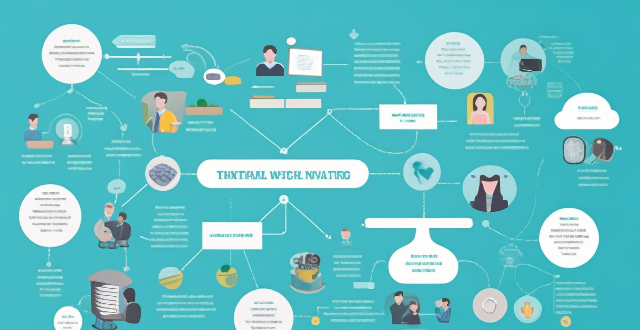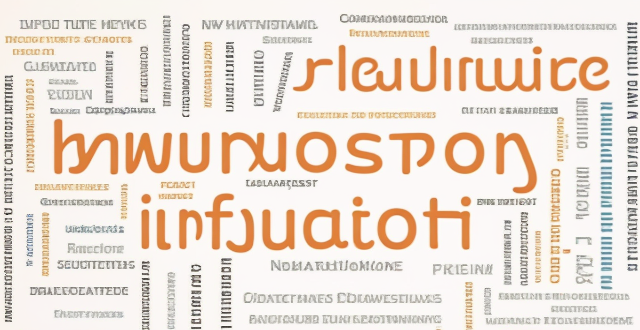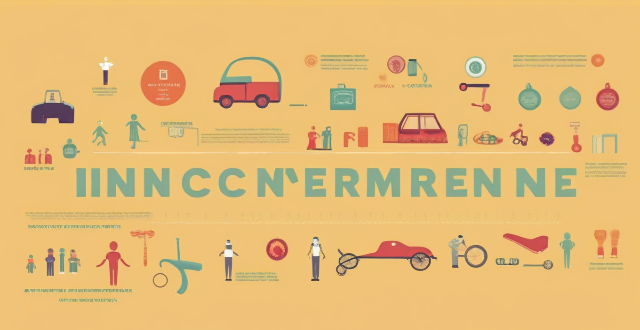Property Insurance

How does a home security system help reduce insurance premiums ?
Home security systems can significantly reduce the risk of burglaries, thefts, and other potential threats to your property and belongings. By installing a home security system, you can deter criminals, provide evidence in case of theft or damage, receive automatic alerts and responses in emergencies, and remotely monitor and control your property. These benefits can lead to lower insurance premiums over time. When selecting a home security system, consider factors such as coverage area, customization options, integration with other devices, and customer support and maintenance.

How do I invest in real estate without buying property ?
Real estate investment offers wealth growth opportunities without buying physical property through options like REITs, crowdfunding, syndication, online platforms, and mutual funds/ETFs. These methods provide liquidity, diversification, and passive income potential while avoiding typical challenges of direct property ownership.

What kind of insurance coverage should I have for disaster preparedness ?
When it comes to disaster preparedness, having the right insurance coverage is crucial. Here are some types of insurance that you should consider: - Homeowners Insurance: Covers the structure of your home, personal belongings, and provides temporary housing expenses if you cannot live in your home due to a covered loss. - Flood Insurance: Covers damage to your home and its contents caused by flooding and requires an Elevation Certificate. - Earthquake Insurance: Covers damage to your home's structure and personal belongings caused by an earthquake. - Windstorm/Hurricane Insurance: Covers windstorm or hurricane damage with a specific deductible and exclusion clauses. - Liability Insurance: Covers bodily injury or property damage that you cause to others and provides additional liability coverage beyond standard policies. - Business Insurance: Covers lost income and extra expenses if your business is interrupted by a disaster and damage to your business property. - Life Insurance: Provides coverage for a specific period of time or lifetime coverage and builds cash value over time. - Health Insurance: Ensures coverage for medical expenses related to disasters and ER visits during emergencies.

How does age affect the cost of insurance ?
The article discusses how age affects the cost of insurance, with younger drivers typically paying higher premiums than older drivers. It highlights that health insurance costs can increase as people age due to increased risk factors and the need for more frequent medical care. Life insurance rates may also rise with age, while auto insurance rates may decrease for retired drivers who spend less time on the road. Homeowners insurance costs depend on the condition and value of the home, but older homes may require more maintenance and repairs. The article provides tips for managing insurance costs as you age, including reviewing coverage regularly, maintaining a good driving record, staying healthy, and considering long-term care insurance.

Are there any tax benefits associated with buying certain types of insurance ?
The text discusses the tax benefits associated with buying various types of insurance, including health insurance, life insurance, disability insurance, long-term care insurance, and homeowner's insurance. The benefits include tax-deductible premiums and tax-free death benefits for certain policies. It is emphasized that consulting a tax professional or financial advisor is crucial to understand how these benefits apply to individual situations, as tax laws vary by country and can be complex.

How does academic integrity relate to the concept of intellectual property ?
The text explores the relationship between academic integrity and intellectual property. It defines academic integrity as the core values of scholarly work, including honesty, trust, fairness, respect, and responsibility, which are essential in research, teaching, and publishing. Intellectual property, on the other hand, refers to legal protections that give creators exclusive control over the use of their creations of the mind. The intersection of these two concepts is discussed in terms of respect for original work, protection of ideas, promotion of innovation, and ethical considerations. Both academic integrity and intellectual property laws stress the importance of respecting original work and protecting ideas. They also promote open access and sharing of knowledge while ensuring responsible conduct of research. The text concludes that upholding academic integrity contributes to a robust system of intellectual property that benefits society as a whole.

How often should I review and update my insurance coverage ?
Insurance coverage is a vital part of financial planning, and it's essential to ensure that policies are up-to-date and reflect current needs. Here's a guide on how often to review and update insurance coverage: 1. **Life Events**: Review coverage during significant life events like marriage, divorce, having children, buying a home, retirement, or job changes. 2. **Annual Check-ups**: Even without major life events, annual reviews help ensure coverage sufficiency, competitive rates, and accurate policy details. 3. **Quarterly Check-ins**: These can aid in monitoring premium payments and understanding policy updates or regulatory changes. 4. **Monthly Reminders**: Set reminders to monitor claims processing, check for discounts, and update emergency contact information. By staying proactive and informed about insurance policies, individuals can ensure they have the right coverage for their evolving needs.

What is private mortgage insurance (PMI) and do I need it ?
Private Mortgage Insurance (PMI) is a type of insurance that protects the lender, not the borrower, in case of default on a mortgage loan. It is typically required when a homebuyer makes a down payment of less than 20% of the home's purchase price. Whether you need PMI depends on factors such as your down payment, credit score, loan-to-value ratio, and type of loan. Consider the cost of PMI and alternatives before deciding to obtain it.

How does the claims process work after I've bought insurance ?
After purchasing insurance, understanding the claims process is crucial. The process typically involves documentation and preparation, filing a claim, assessment and investigation, approval or denial, receiving benefits, and considering deductibles/excesses and policy renewal impacts. It's important to gather evidence, notify your insurer, complete a claim form, provide necessary details, review the initial assessment, potentially undergo an investigation, receive approval or denial, arrange for payment, follow up as needed, pay any deductibles/excesses, and be aware of potential premium impacts at renewal. Refer to your policy documents for detailed instructions tailored to your insurance provider's processes.

What are the closing costs associated with a mortgage ?
Closing costs are fees and expenses associated with finalizing a real estate transaction. These costs vary based on location, property type, and lender requirements. Common closing costs for buyers include loan origination fees, appraisal fees, credit report fees, title search and insurance fees, attorney fees, recording fees, prepaid interest, homeowner's insurance premium, property taxes, and other miscellaneous fees. It is important to budget for these expenses in advance and review all closing documents carefully to avoid any financial surprises during the home-buying process.

What is the difference between term life insurance and whole life insurance ?
Difference between term life insurance and whole life insurance: - Term life insurance is temporary coverage, no cash value, renewable, and affordable. - Whole life insurance is permanent coverage, accumulates cash value, has level premiums, and is more expensive.

How does sports insurance work ?
Sports insurance is a specialized form of insurance that protects athletes and sports participants from financial losses due to injuries or accidents that may occur during physical activities. It provides coverage for medical expenses, lost wages, and other related costs associated with sports-related injuries. There are several types of sports insurance policies available, including personal accident insurance, liability insurance, equipment insurance, and travel insurance. Sports insurance typically covers a wide range of sports-related injuries and accidents, including medical expenses, disability, funeral costs, legal fees, equipment damage or theft, and travel expenses. The cost of sports insurance varies depending on several factors, including the type of sport, the level of risk involved, the policyholder's age and health status, and the amount of coverage desired.

How can I ensure that I'm getting the best price for my insurance ?
To ensure the best price for your insurance, shop around using comparison websites and direct insurers, consider brokers, increase your excess, pay annually instead of monthly, improve security measures, build a no-claims bonus, review coverage regularly, take advantage of discounts, maintain good credit history, avoid small claims, and renew early. These steps can help you save money on insurance while still ensuring adequate coverage.

What are the potential risks of climate change for the insurance sector ?
Climate change poses significant threats to the insurance sector, including increased natural disasters, changes in liability exposures, property value fluctuations, and regulatory/legal changes. Insurers must adapt by assessing risks, updating policies, and collaborating with governments to create effective strategies.

What are the implications of climate change for insurance pricing and underwriting ?
Climate change has significant implications for insurance pricing and underwriting, including increased risk of natural disasters, changes in property values, liability concerns, and the potential for catastrophic events. Insurers may need to adjust their pricing models and underwriting criteria to reflect these changing risks.

Is there an age limit for buying travel insurance ?
Is there an age limit for buying travel insurance? Most providers do not impose any restrictions based on age, but some policies may have specific requirements or limitations regarding age. When purchasing travel insurance, consider factors such as coverage options, pre-existing medical conditions, adventure sports coverage, cost, and reputation.

How much does sports insurance cost ?
The cost of sports insurance varies based on the type of sport, level of coverage, and individual's age and health status. High-risk sports typically have higher premiums than lower-risk activities. Basic policies may only cover medical expenses and lost wages due to injury, while more comprehensive plans may include additional benefits such as disability coverage and accidental death and dismemberment insurance. Younger athletes may have lower premiums than older ones, and individuals with pre-existing medical conditions or a history of injuries may face higher premiums. Tips for finding the best sports insurance policy include shopping around, considering bundling, and asking about discounts.

What is the process of buying insurance online like ?
The text provides a detailed guide on how to buy insurance online. It outlines the process in eight steps: researching and identifying needs, selecting an insurance provider, getting a quote, reviewing policy details, completing documentation, making payment and receiving policy documents, confirmation and follow-up, and activating coverage. The benefits of buying insurance online include convenience, comparison, transparency, and speed. However, precautions such as ensuring security and legitimacy of the website, and fully understanding the policy terms should be taken.

Is sports insurance necessary for amateur athletes ?
This article explores the necessity of sports insurance for amateur athletes. It defines sports insurance as coverage against injuries sustained during sports activities, including medical expenses, lost income, rehabilitation costs, equipment damage, and liability coverage. The article highlights the risks and costs associated with sports injuries, noting that 62% occur during recreational activities rather than competitive events. It argues that sports insurance offers peace of mind, financial protection, and access to quality care for amateur athletes but may not be necessary for all. Factors to consider when deciding whether to purchase sports insurance include risk level, personal finances, existing health insurance, and frequency of participation.

Can I buy travel insurance for someone else, like my parents or children ?
The article discusses the possibility of buying travel insurance for someone else, such as family members. It highlights the importance of understanding the specific requirements and restrictions associated with this process. The text provides a step-by-step guide on how to purchase travel insurance for someone else, emphasizing the need to choose the right policy that fits the insured person's needs and provides adequate coverage for their trip.

How does credit history influence insurance rates ?
The text discusses how credit history influences insurance rates. Insurers use credit history as a predictor of future claims and risk, with studies showing that individuals with poor credit histories are more likely to file claims and cost insurers more money than those with good credit histories. Several factors can affect insurance rates based on credit history, including payment history, amount owed, length of credit history, and types of credit used. Maintaining a strong credit history can potentially save money on insurance premiums and demonstrate financial responsibility to insurers.

How much life insurance do I need ?
Determining how much life insurance you need is a complex process that depends on your financial situation, income replacement needs, debts and final expenses, current coverage, and consultation with a professional. Assessing your financial needs, calculating income replacement needs, considering debts and final expenses, evaluating current coverage, and consulting with a professional are all important steps to ensure you have the right amount of life insurance coverage for your loved ones.

Are pre-existing medical conditions covered by travel insurance ?
Travel insurance coverage for pre-existing medical conditions varies by policy and provider. Factors influencing coverage include the type of policy, deductibles and limits, waiting periods, and disclosure of information. Some policies offer limited or comprehensive coverage for these conditions, while others exclude them altogether. It is crucial to research different policies and consult with an insurance professional to find the best coverage for your individual needs.

What role does the insurance industry play in mitigating climate change ?
The insurance industry plays a crucial role in mitigating climate change through various mechanisms. They assess and price risks associated with climate change, providing financial incentives for mitigation, invest in sustainable projects, apply stricter underwriting criteria for high-emission industries, collaborate on research efforts, innovate insurance products, educate clients about climate risks, lobby for climate policies, and support reinsurance to share risks globally and back catastrophe bonds. By integrating climate considerations into their business models, insurers can drive progress toward a more sustainable future.

How does having a pre-existing condition impact my ability to buy insurance ?
The text discusses the impact of pre-existing conditions on insurance purchase, including eligibility, cost, waiting periods, exclusions and limitations. It also provides tips for buying insurance with a pre-existing condition such as researching options, disclosing relevant information, considering government-sponsored plans, and working with an insurance broker.

Can I purchase travel insurance after booking my trip ?
The article discusses the possibility of purchasing travel insurance after booking a trip. It emphasizes that buying travel insurance early provides more comprehensive coverage, peace of mind, and potentially better prices. To purchase travel insurance after booking, one should research different policies, contact their travel agent or insurance company, provide relevant information, read the policy details carefully, and keep documentation safe. The article concludes that buying travel insurance early is generally recommended for optimal coverage and peace of mind during travels.

What is sports insurance and why is it important ?
Sports insurance, also known as athletic or sports-related insurance, is a type of insurance that covers athletes and participants in physical activities from injuries or accidents. It includes coverage for medical expenses, lost wages, and other damages resulting from an injury or accident. Sports insurance is important because it provides protection against injuries, lost wages, liability, and offers peace of mind for athletes. It allows them to participate in their chosen sport without worrying about the financial implications of an injury or accident.

Is it worth buying travel insurance for domestic trips ?
The article discusses the importance of travel insurance for domestic trips. It suggests that while it may not always be necessary, it can provide an additional layer of protection and peace of mind, especially for those embarking on adventurous or expensive trips. The article provides a list of key points to consider when deciding whether to purchase travel insurance, including risk assessment, coverage details, cost analysis, personal circumstances, and peace of mind. It also lists the benefits of travel insurance for domestic trips, such as medical coverage, trip interruption/cancellation, baggage loss/theft, emergency evacuation, and accidental death and dismemberment. The article concludes by suggesting that the decision to buy travel insurance depends on various factors such as the nature of the journey, existing coverage, and personal preferences.

What role does life insurance play in estate planning ?
Life insurance is a crucial tool in estate planning, offering solutions for liquidity needs, tax considerations, charitable giving, business succession, income replacement, and wealth preservation. It helps beneficiaries gain immediate access to cash, manage estate taxes, support philanthropic goals, facilitate business transitions, replace lost income, and transfer wealth efficiently. Life insurance policies can be tailored to fit individual needs, making them a versatile component of any comprehensive estate plan.

Will travel insurance cover me if I get sick while abroad ?
Travel insurance can cover travelers if they get sick while abroad, but coverage depends on the policy's terms and conditions. Factors to consider include coverage limit, deductible, pre-existing conditions, exclusions, emergency evacuation/repatriation, and claims process. When choosing a travel insurance policy, assess your needs, compare policies, read reviews, purchase early, and consult a professional if necessary.